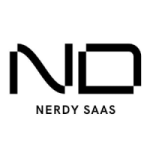The banking and finance sector no longer considers it effective to store and process data on physical servers or paper. We now have cloud-based accounting software, which is an advancement above these traditional options. With these platforms, you’re able to store and process all of your data on virtual servers in the “cloud” that is available from anywhere at any time by anybody with the right login information.
All of your company’s accounting data is safely stored, processed, and managed using cloud accounting technology on a single secure platform. Like a bank, the data is kept encrypted, and only the right login information can be used to access it. Your company’s accounting software’s cloud servers can be accessed online.
The benefits of Cloud Based Accounting Software are as follows:
Detailed analytics:
Modern analytical tools and resources that can provide you with minute insights and total visibility over all of your accounts are also included with cloud accounting software. This program can serve as your personal financial counsellor producing reports that are tailored to your needs and providing helpful feedback.
Secure storage:
Cloud-based accounting offers a significantly more secure solution for keeping financial information than desktop-based software or paper-based systems. Since there are no physical storage places, SaaS companies routinely backup data to multiple servers dispersed across various locations, reducing the risk of data theft. Furthermore, this guarantees that data is safeguarded from natural disasters.
Uncomplicated access:
Your information will not be copied or restricted to a small number of physical books that are accessible by one person at a time if it is kept in a paperless accounting system. Your data can be accessed from anywhere at any time by as many people as are available when it is stored on the cloud. All of these persons will only be able to see the same data on the same program at the same time and, if necessary, collaborate on the data via their login credentials.
Real-time access:
The ability to examine your accounting transactions in real-time as they happen is one of the best features of cloud accounting software. It might be harming your visibility over your finances to wait until the end of a week, every other week, or a month before you can detect differences in cash flow or finances. Cloud accounting’s real-time transactions and reporting capabilities enable you to get a financial overview of your accounts anytime and wherever you need or want to.
Centralizes the work:
When all the capabilities in cloud-based accounting software are combined, they serve as a one-stop shop for all your accounting problems. These solutions provide features like automatic approval workflows, invoice processing, foreign exchange, and cost reimbursement that work together to help you to centralize and integrate activities on a single thorough platform.
Greater accuracy:
The need for manual labour, guesswork, and verification is greatly reduced by accounting automation. Technology is much less prone to mistakes than people are. Your finance team’s workload is reduced when you assign your accounts to cloud-based corporate accounting software. Furthermore, you can be sure that tasks are carried out by a system that is built to be an error-free, accurate, and resistant and integrate all of your accounting activities on a single thorough platform
No Expensive Server Upkeep or Upgrades:
Using cloud accounting software, you can avoid the costs associated with acquiring, maintaining, and upgrading an office server. You are also relieved of the responsibility of obtaining and setting up software updates. Without any effort on your part, these are managed by the software vendor and distributed directly over the cloud.
Enhanced Cooperation:
The use of cloud accounting software may encourage better teamwork and communication. Team members may work together on the same documents and information if they have real-time access to financial data, which avoids the need for time-consuming exchanges of information.
Conclusion:
To sum up, cloud accounting has much to offer companies of all sizes, including cost savings, improved accessibility and cooperation, real-time updates, scalability, and flexibility. Businesses may streamline their financial procedures, increase productivity, and stay one step ahead of the competition by utilizing cloud accounting solutions.




